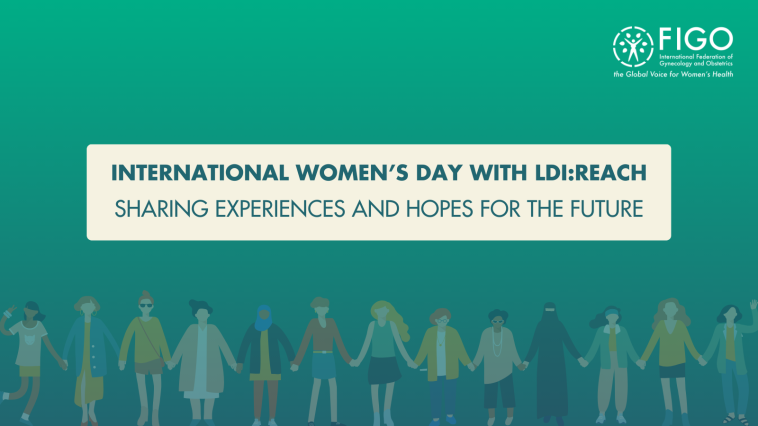IWD 2024: Women in healthcare voice their experiences and hopes for the future

As part of LDI:REACH, FIGO is bringing together female healthcare professionals from Bangladesh, Ethiopia, India, Kenya, Nigeria and Pakistan to reflect on their work experiences and explore how gender might have influenced their careers opportunities.
To mark International Women’s Day 2024, we share the main challenges female health professionals had to overcome and ask them how we can make health systems become more inclusive.
Barriers to gender equity in healthcare: key findings
One of the biggest challenges voiced by women working in the healthcare is how difficult it is for them to balance professional and personal commitments such as childcare and family care. Half of the women interviewed mentioned the need to take career breaks or slow down their professional progress in order to meet their family responsibilities.
They also mentioned the higher expectations placed on women to participate in social and communal life, and feelings of guilt linked to the way they divided their time between their careers and their families. For some, taking on additional leadership responsibilities did not feel realistic considering what they were already juggling.
Another key barrier flagged by female healthcare professionals is their need to adapt to environments that are not designed for them. Almost half mentioned that systems and resources, such as PPE, are built for men so they do not fit properly and leave them feeling unsafe. Some also felt that male doctors received more respect and that they had access to better pay and more positions of authority.
Towards a more inclusive and equitable health care systems
We have asked female doctors what can be done to reach equity in healthcare, and here is what they have to say:
"I hope to see more women in leadership positions, to promote gender diversity. I hope more women will have the tools, confidence, mentoring, networks and support to use their voice and expertise to make an impact on health. I hope more women will be involved in research. I hope more women will be represented in all specialties, including those perceived as more challenging."
- Dr. Odigonma Ikpeze, Nigeria
"I hope for greater awareness of gender-specific health issues. To achieve this, disparities need to be addressed. Women's leadership in healthcare systems should be encouraged in order to develop an equitable healthcare system."
- Dr Seemab Zafar, Pakistan
Encouraging education for girls and support will make more females available to be employed in the health sector. It would also facilitate more women accessing leadership positions in healthcare facilities.
- Dr Rahila Garba, Nigeria
"I hope there will be legal changes in MTIs [Medical Teaching Institution] to allocate a mandatory seat on the board to a woman, as currently most teaching hospital boards are all-male. There needs to be a conscious effort for promoting female participation in the field of general surgery in Pakistan. Although medical institutes in Pakistan are dominated by female students, there is a trend in Pakistan where families do not support female doctors to continue practicing medicine after marriage. This has a direct impact on the participation rate of females in the medical work force. I hope this social trend changes, as that would surely make healthcare more inclusive in the country."
- Dr Javeria Saleem, Pakistan